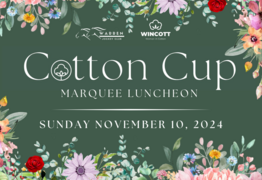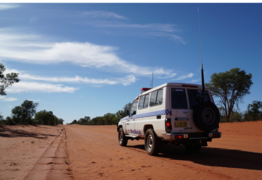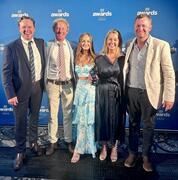Marshes on show for MDBA
Coonamble Times
31 October 2024, 8:20 PM
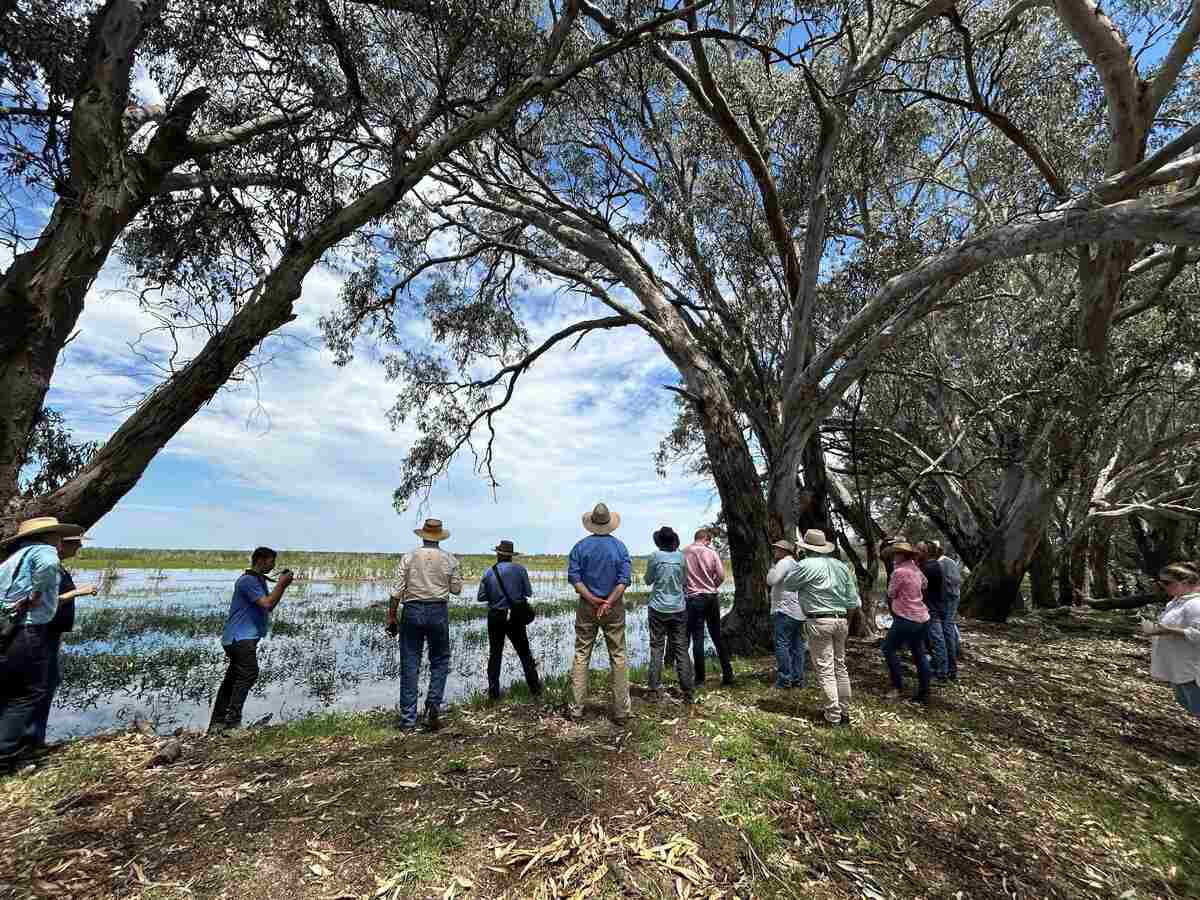 Visitors view an area of the Macquarie Marshes last week
Visitors view an area of the Macquarie Marshes last weekThe Murray Darling Basin Plan has been widely criticised for its failures and for creating conflict and division between states, regions and even local communities.
Now, the gargantuan task of reconfiguring the Plan is underway.
On Wednesday 23 October leaders of key government bodies were in the Macquarie Marshes to hear from local stakeholders on the road to a new ten-year-plan to manage water in the Murray Darling Basin.
The visit was part of a tour this week that included Dubbo, Warren and Narromine, and seeking a range of opinions on the best way to manage rivers and wetlands in the region.
The federal Murray Darling Basin Authority's (MDBA) Chief Executive, Andrew McConville, met members of the Macquarie Marshes Environmental Landholders Association (MMELA) at 'The Mole,' a private property owned by graziers Garry and Leanne Hall.
Mr McConville was joined by other officials from the Authority along with representatives of Dept of Climate Change, Energy, the Environment & Water; the NSW National Parks and Wildlife Service; and Commonwealth Environmental Water Holder head Dr Simon Banks.
In the wake of last year's revelations that water recovery outlined in the original Basin Plan had fallen far short of targets and could not be completed before the Plan expired, the MDBA is now tasked with overseeing a new approach to implement the goals of the original Basin Plan in full.
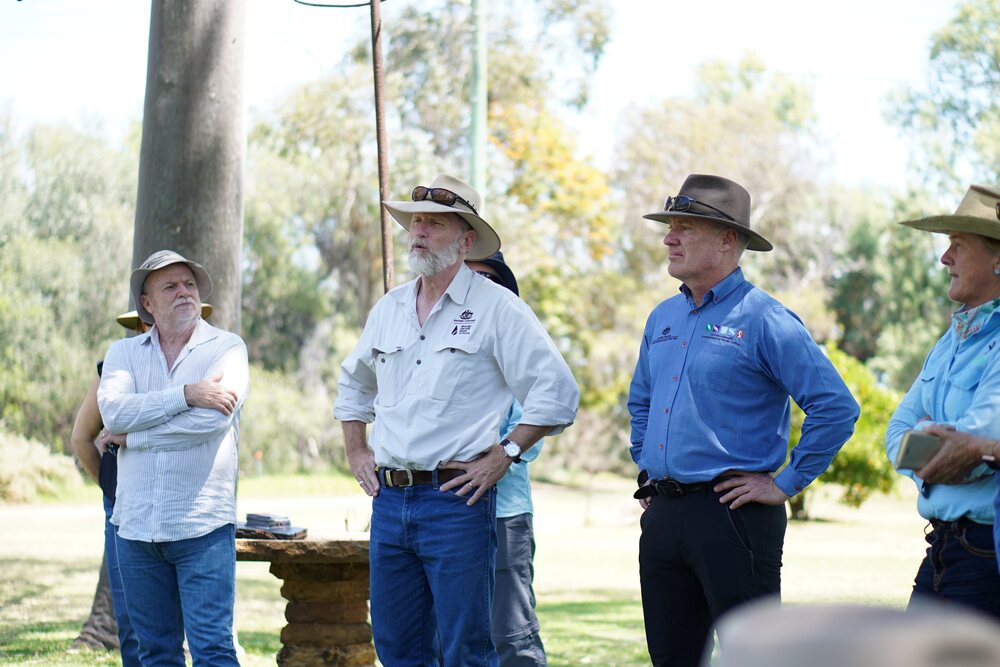
The Murray-Darling Basin Authority (MDBA) member Professor Stuart Bunn with MDBA CEO Andrew McConville and Commonwealth Environmental Water Holder head Dr Simon Banks.
"Quite understandably, everyone has the needs of their part of the Basin at the forefront," Mr McConville said. "As the Authority, we're probably the one agency that takes that whole-of-basin picture.
"That's a delicate balancing act, but the only way we can understand is to get out and have conversations like this.
"Every time I come out, it's like another little piece of the puzzle when the picture comes together. That's really important as we look to review the Basin Plan."
The Authority is expected to deliver their review in late 2026 and will make recommendations focusing on climate change, sustainable extraction limits, regulation and Indigenous involvement.
"When the Basin Plan was made in 2012, we were coming off the back end of the Millennium drought," Mr McConville said. "Something had to change and it was a pretty blunt intervention, to be honest.
"Twelve years on, we know a lot more. We know how to use environmental water. We understand the benefits that come from water recovery.
"We've got 12 years of data on how the Basin Plan has been implemented.
"That should allow us to develop a Basin plan for the next 10 years that's much more adaptable."
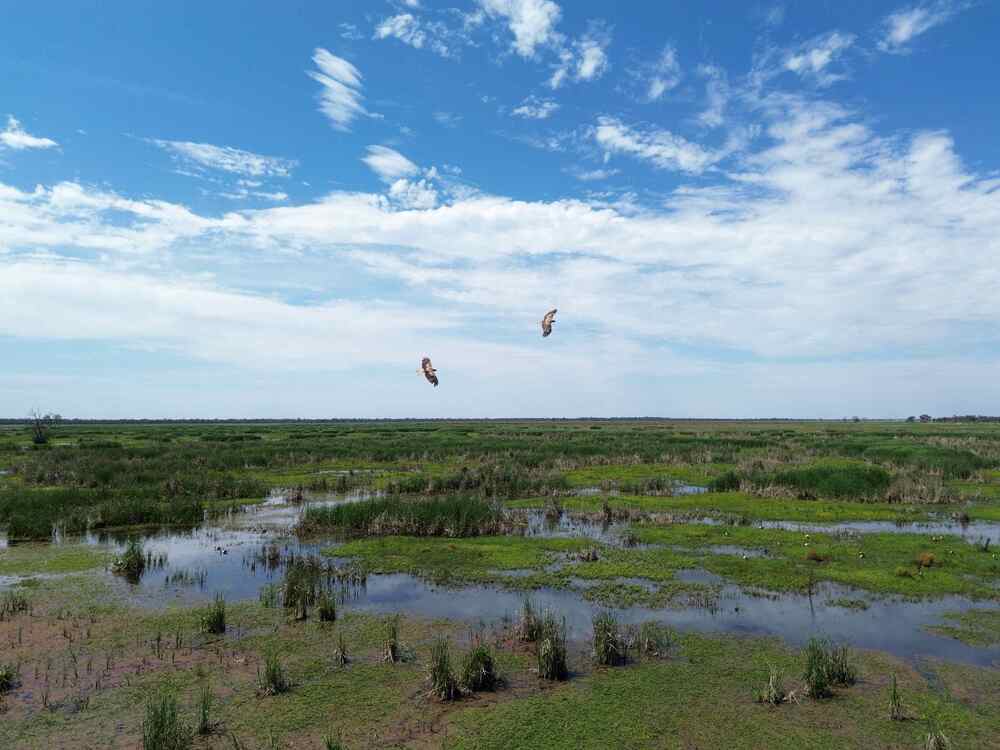
The latest environmental release has this section of the Macquarie Marshes near The Mole looking a picture.
On the front garden of The Mole, just metres from the Macquarie Marsh, 20 people discussed wide-ranging topics including upstream water extraction on the environment and efforts to improve river health by
recovering water from human uses like agriculture.
MMELA members encouraged Mr McConville to listen more widely to hear other voices such as First Nations, floodplain graziers, downstream communities and croppers in the un-regulated sections of the Macquarie system.
“Irrigators are stakeholders. They represent part of the community. They are not spokespeople for the whole community,” Garry Hall said.
Mr McConville said he is increasingly hearing from environmental groups and that he has hopes that the revised plan will better accommodate First Nations water rights.
Stakeholders also spoke about wildlife numbers in the Macquarie Marshes particularly the results of water bird monitoring, and discussed how ‘environmental water releases’ revealed the value that the Marshes can provide.
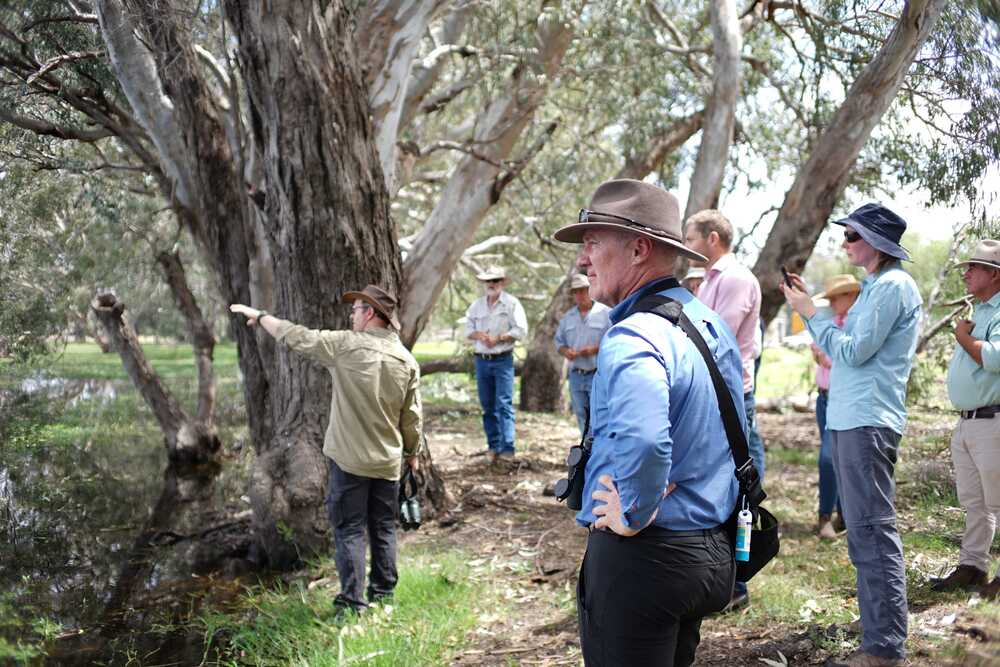 Dr Simon Banks (Environmental Water Holder) and other delegates listen to Tim Hosking explain the impact of the latest release of water down the Macquarie River.
Dr Simon Banks (Environmental Water Holder) and other delegates listen to Tim Hosking explain the impact of the latest release of water down the Macquarie River.
The MMELA members urged government representatives to fully acknowledge the connectivity between the Macquarie River and the Barwon-Darling.
“Even right up until now, it has been always suggested by WaterNSW and the irrigation industry upstream that the Macquarie River is a closed system and not part of the Murray Darling,” said east Marsh landholder Dugald Bucknell.
It was confirmed that 80GL has been provided by the Macquarie to the Barwon Darling flows so far this year.
Earlier in the day the touring group also met with the Warren and Narromine shire councils and irrigator and First Nations representatives.
Retired irrigator and Warren Shire councillor Tony Wass was among a small group who hosted the touring party on the same day at the Burrima Boardwalk private reserve.
Mr Wass said water buy backs are not necessary for sustainable wetlands.
“I hope to get across to them what can be done and how much land management can be very positive within the Marshes,” Mr Wass said.
“We’ve taken cattle out of the of that particular marsh area for about 19 years now. We’ve had a huge explosion in all of the plant varieties that inhabit the marsh because there’s no tramping, there’s no eating.
“We do appreciate the fact that they come out and they do look and ask questions.
“Whatever part of rural industry, we answer those as openly and honestly as we can.”
